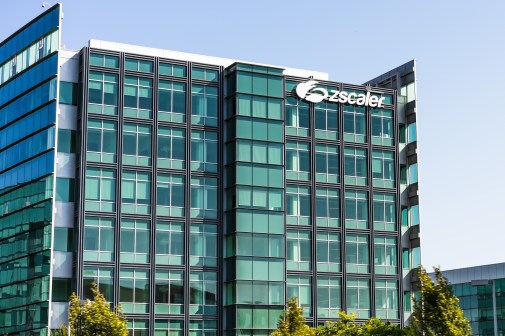What do you think about the ongoing mergers and acquisitions in the cybersecurity landscape? The recent news about Palo Alto Networks acquiring CyberArk is turning heads, especially given the stakes and the implications for the industry.

This image is property of cyberscoop.com.
Palo Alto Networks: A Leader in Cybersecurity
Palo Alto Networks has earned its reputation as a trailblazer in the cybersecurity space. By consistently innovating and expanding its offerings, it has positioned itself as a formidable player against rising cyber threats. With a firm belief in a comprehensive cybersecurity strategy, it seeks to protect organizations from ever-evolving risks. The recent acquisition of CyberArk is a monumental step in that direction.
CyberArk’s Role in Identity Security
CyberArk, founded over two decades ago, is a standout in the field of identity security. It specializes in privileged access management technology, crucial for controlling and monitoring access to critical systems and accounts. The company serves notable clients, including Carnival Corp., Panasonic, and Aflac.
Why Identity Security Matters
In today’s digital landscape, managing privileged credentials is one of the most vulnerable aspects of enterprise security. With the increasing frequency of cyberattacks, organizations must be more vigilant than ever. CyberArk’s solutions address these vulnerabilities, making them a valuable asset for companies that prioritize security.

This image is property of cyberscoop.com.
A $25 Billion Investment in the Future
Palo Alto Networks’ decision to acquire CyberArk for approximately $25 billion illustrates the importance of identity security in the cybersecurity market. This transaction marks the largest acquisition in Palo Alto Networks’ history and signifies a formal entry into the identity security space. It’s worth noting how strategic this move is, especially as identity security becomes increasingly critical in an era characterized by heightened AI adoption.
The Identity Security Landscape
As organizations brace for the complexities brought on by artificial intelligence, identity security needs to evolve. The rise of AI and the emergence of machine identities demand enhanced privileged access controls. This is where Palo Alto Networks aims to excel, creating a future where every identity—human or machine—has the right level of control.
Understanding the Acquisition Context
When you consider the broader industry dynamics, it’s evident that cybersecurity firms are under pressure to provide comprehensive solutions. Customers prefer integrated systems over managing multiple vendors as threats grow more sophisticated. High-profile breaches like the Microsoft SharePoint vulnerabilities have only intensified this focus on identity protection.

This image is property of cyberscoop.com.
Strategic Expansion for Palo Alto Networks
For Palo Alto Networks, this acquisition isn’t just about gaining a competitor; it’s about strategically expanding its reach. CEO Nikesh Arora has conveyed that identity security represents an inflection point in the current market.
Leveraging AI for Security
The complementarity of CyberArk’s solutions with Palo Alto Networks’ existing portfolio, including cloud, network, and endpoint security products, enhances their offerings significantly. This combination aims to provide a more fulfilling security experience for users and positions the company at the forefront of cybersecurity innovation.
Industry Reactions and Predictions
Many industry analysts view this acquisition as addressing a notable gap in Palo Alto Networks’ portfolio. By integrating CyberArk’s expertise in identity security, the company is poised to accelerate growth in areas that have witnessed some deceleration.
What Analysts Are Saying
Allie Mellen, a principal analyst with Forrester, emphasizes that Palo Alto Networks has been on a quest to become a dominant platform player in the security market. The acquisition of CyberArk fills a critical gap and rounds out its approach to cybersecurity.
The Bigger Picture: Consolidation in Cybersecurity
The current trend in the cybersecurity field emphasizes consolidation, where larger firms acquire smaller, specialized companies. Google’s $32 billion acquisition of Wiz earlier this year exemplifies this movement towards integrated security solutions—responses to increasingly sophisticated cyber threats reflect a market preference for such strategies.
Why Consolidation Matters
As you look at trends in the cybersecurity space, it’s apparent that organizations are leaning towards platforms that offer comprehensive protection rather than scattered point solutions. This shift is largely driven by the desire to streamline vendor relationships, manage risks more effectively, and simplify security protocols.
Regulatory Considerations
While both Palo Alto Networks and CyberArk have received unanimous board approvals for this acquisition, the deal still faces hurdles before it can be finalized. It requires regulatory clearances and approval from CyberArk shareholders.
Expected Timeline
The transaction is projected to close during the second half of Palo Alto Networks’ fiscal 2026, which sets a timeframe for stakeholders to monitor updates closely.
The Future of Cybersecurity
As you sit back and think about these changes in the cybersecurity domain, consider how they affect the broader industry landscape. The acquisition of CyberArk by Palo Alto Networks not only marks a significant milestone for both companies but also shapes the future of cybersecurity solutions.
Implications for Organizations
With the increasing sophistication of cyber threats, organizations must prioritize the adoption of integrated security systems. CyberArk’s technologies, under the Palo Alto Networks umbrella, will likely play a crucial role in how organizations protect valuable assets.
Best Practices for Organizations
With the abundance of cybersecurity challenges, organizations need to adopt best practices that align with industry standards. Here are some recommendations:
| Best Practice | Description |
|---|---|
| Comprehensive Risk Assessment | Regularly assess potential vulnerabilities to stay ahead of threats. |
| Integrated Security Solutions | Opt for systems that consolidate multiple security functionalities. |
| Continuous Training | Regularly train staff on latest threats and security protocols. |
| Incident Response Plan | Develop a robust incident response strategy to minimize damage during a cyberattack. |
| Identity and Access Management | Focus on stringent credential management to ensure authorized access only. |
Conclusion: The Evolving Cybersecurity Landscape
Reflecting on Palo Alto Networks’ acquisition of CyberArk, it’s clear that the landscape of cybersecurity is evolving. This strategic move should encourage organizations to rethink their security measures, focusing on integrated solutions to combat rising threats effectively.
By understanding the shifts in the industry and optimizing practices accordingly, organizations can better position themselves against future cyber challenges. Does this acquisition signal a new wave of innovation in your view? With the stakes ever higher, the attention on identity security will certainly continue to grow, reshaping how organizations approach cybersecurity in the coming years.